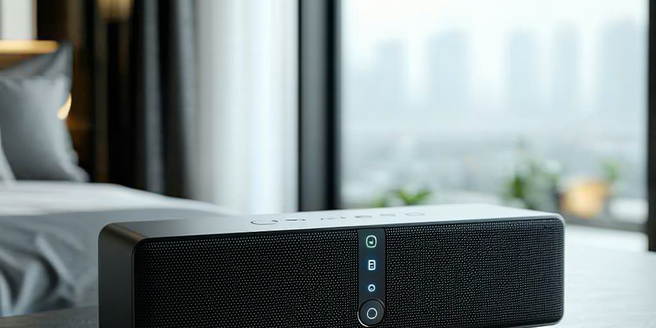Bluetooth Speaker Innovations

The Evolution of Bluetooth Speaker Technology
Bluetooth speaker technology has come a long way since its inception. Initially, these devices were limited in performance and range, offering basic wireless audio playback. However, advancements in Bluetooth technology have significantly improved audio quality and connectivity. Early versions struggled with audio compression and limited bandwidth, but modern speakers benefit from enhanced codecs like aptX and AAC, which deliver near-lossless sound quality. Moreover, the transition from Bluetooth 3.0 to 4.0 and beyond introduced lower energy consumption and increased connection stability. This evolution enabled the integration of additional features such as voice assistants, multi-device pairing, and extended battery life, making Bluetooth speakers more versatile and appealing to a broader audience. These improvements illustrate how continuous innovation is driving the success of Bluetooth speakers in the consumer audio market.
Key Features in Modern Bluetooth Speakers
Modern Bluetooth speakers boast an impressive array of features that enhance user experience. One key feature is portability, with many models offering compact designs and long-lasting battery life, allowing users to enjoy music on the go. Additionally, water and dust resistance make these speakers suitable for various environments, from the beach to the shower. Advances in sound technology mean many speakers now deliver powerful bass and crisp treble, rivaling larger wired systems. Smart functionality is also popular, with voice assistant integration and app control offering users seamless operation. Multi-pairing capabilities and connectivity options, such as AUX and USB, provide further versatility. Furthermore, stylish designs and customizable LED lights make these speakers not just a musical device but a statement piece in any home. These features collectively position Bluetooth speakers as a dominant force in portable audio technology.
Sustainability in Speaker Manufacturing
As environmental concerns gain prominence, sustainability in speaker manufacturing has become a priority. Brands are adopting eco-friendly practices and materials to reduce their carbon footprint, with some companies introducing speakers made from recycled plastics and sustainable wood. Energy efficiency is also a focus, with innovations aimed at minimizing power consumption without sacrificing performance. Packaging is being redesigned to use less material and incorporate biodegradable or recyclable materials. Moreover, companies are implementing take-back programs to encourage recycling and proper disposal of old devices, reducing electronic waste. By fostering a culture of sustainability, manufacturers are not only meeting consumer demand for greener products but also contributing to global efforts in environmental conservation. These initiatives are transforming the Bluetooth speaker industry and setting new benchmarks for eco-conscious production in the electronics sector.
Integration with Smart Home Devices
Integration with smart home devices represents a transformative trend in Bluetooth speaker design. As smart homes become increasingly popular, consumers seek devices that easily connect with their existing systems. Bluetooth speakers now often feature compatibility with voice-activated platforms such as Amazon Alexa, Google Assistant, and Apple HomeKit, allowing users to control their speakers alongside other smart devices. This integration facilitates tasks such as adjusting music playback, checking the weather, or controlling smart lighting, all through voice commands. Additionally, some models support automation routines, enabling a seamless blend of entertainment and home management. By serving as a bridge between music and smart home functionality, Bluetooth speakers enhance convenience and connectivity, making them an indispensable part of modern household setups. The synergy between Bluetooth audio technology and smart home systems continues to evolve, offering users a streamlined and sophisticated home experience.
Future Trends in Bluetooth Audio Solutions
The future of Bluetooth audio solutions lies in the convergence of innovative technologies and user-centric design. Trends indicate a move toward higher audio fidelity through advanced codecs, enabling superior wireless sound quality. Additionally, Bluetooth LE Audio is set to revolutionize the industry by providing low-power audio streaming, which enhances battery life and opens new possibilities for small form-factor devices. Personalization through AI and machine learning will allow speakers to adapt sound profiles to individual listener preferences, creating bespoke audio experiences. With the rise of immersive audio formats like Dolby Atmos, future Bluetooth speakers may also support three-dimensional soundscapes, elevating the listening experience. Moreover, the expansion of the Internet of Things (IoT) is likely to see speakers functioning as integral components within a connected ecosystem, enhancing control and interaction. These trends offer a glimpse into the exciting advancements in Bluetooth audio technology.